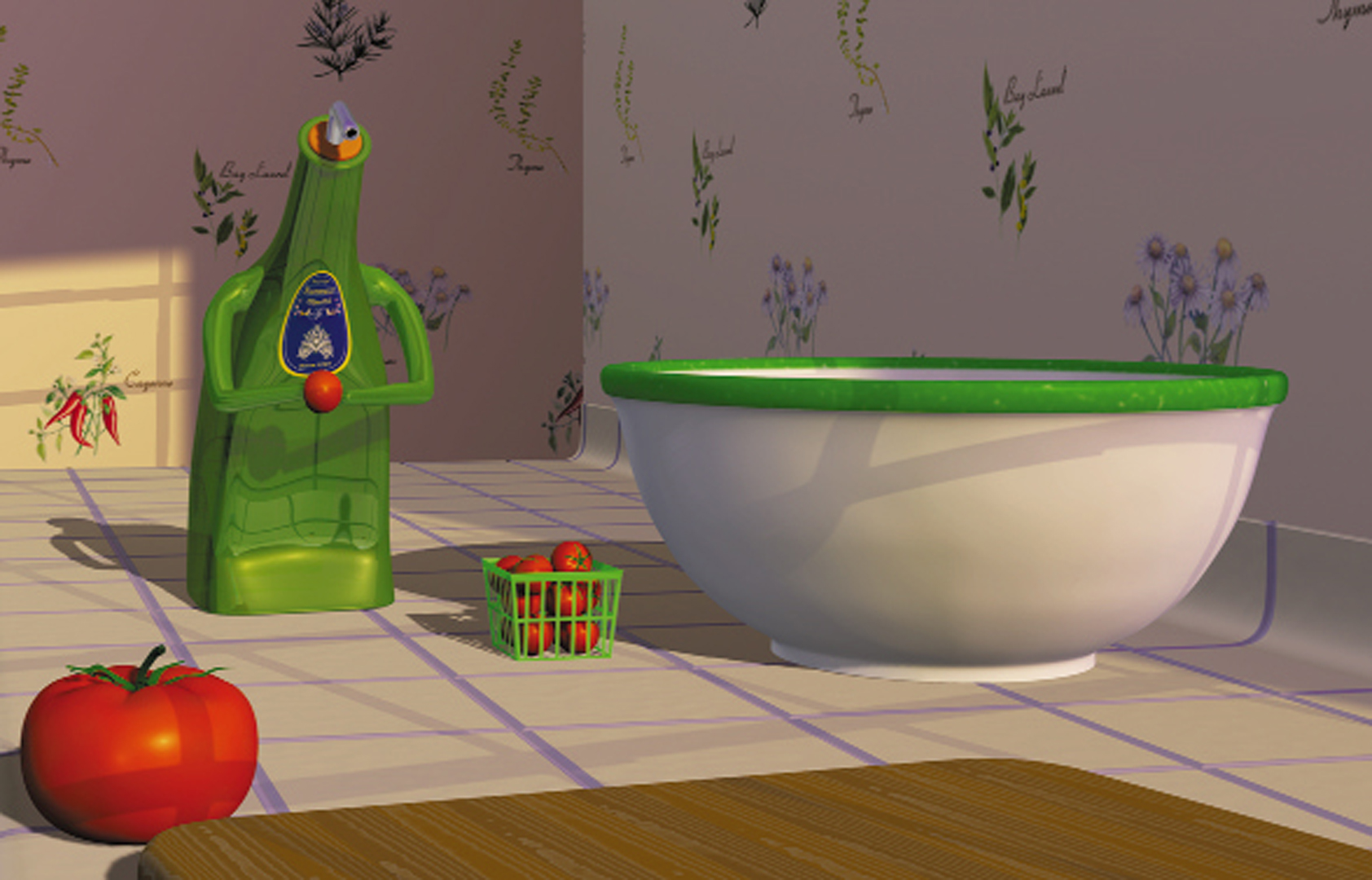“Salad Bowl: A Carrot’s Tale” by Walt Disney Animation Studios
Notice: Pod Template PHP code has been deprecated, please use WP Templates instead of embedding PHP. has been deprecated since Pods version 2.3 with no alternative available. in /data/siggraph/websites/history/wp-content/plugins/pods/includes/general.php on line 518
Conference:
- SIGGRAPH 1999 More animation videos from SIGGRAPH 1999:
Notice: Array to string conversion in /data/siggraph/websites/history/wp-content/plugins/siggraph-archive-plugin/src/next_previous/source.php on line 345

Notice: Array to string conversion in /data/siggraph/websites/history/wp-content/plugins/siggraph-archive-plugin/src/next_previous/source.php on line 345

SIGGRAPH Video Review:
Track:
- 06
Title:
- Salad Bowl: A Carrot's Tale
Director(s):
Company / Institution / Agency:
- Walt Disney Animation Studios
Description:
When the early morning sun breathes life into an olive oil bottle and her vegetable minions, a game of carrot bowling is set to begin. But first, our bowling bottle must convince a reluctant young baby carrot to line up in formation.
This light-hearted short was completed as an after-hours project by a group of software engineers. Every scene in the film was animated with an evolved version of the ImageTimer system presented in an animation sketch at SIGGRAPH 98.
The project served dual purposes as both a training exercise and a test bed for a suite of proprietary animation tools. This system attempts to simplify the animation process while intro-ducing paradigms familiar to the traditionally trained artist. The animator begins by creating poses for a character. Next, a custom plug-in records snapshots of these poses into a propri-etary playback tool that contains a built-in exposure-sheet editor that the animator can manipulate to interactively adjust the timing of the loaded images. These timed images form a
“pose test.” The animator can apply these timing changes back to the 3D model – in effect, synchronizing the 3D animation data to the exposure sheet. The animator can further refine the animation by constructing digital timing charts that offer an efficient timing control mechanism and allow animators to time most scenes without ever touching an animation curve.
Additional Contributors:
Director/Producer: Michael S. Blum
Artistic Supervisor and CGI Lead: Mike King




